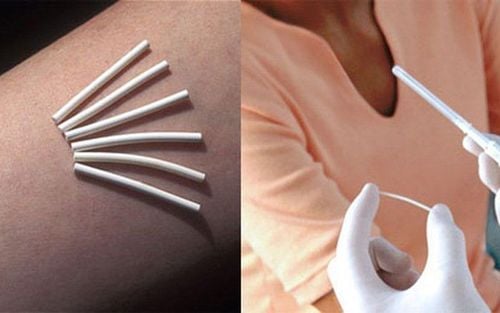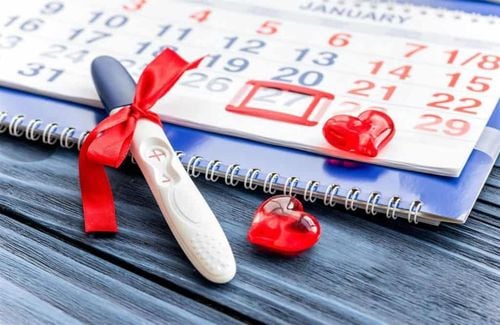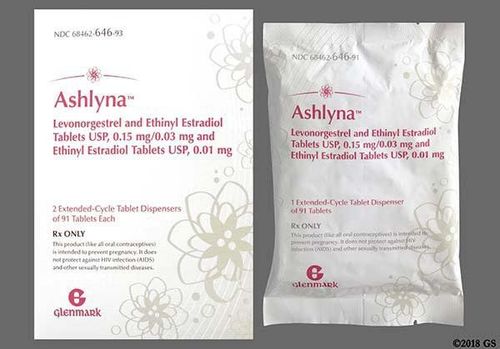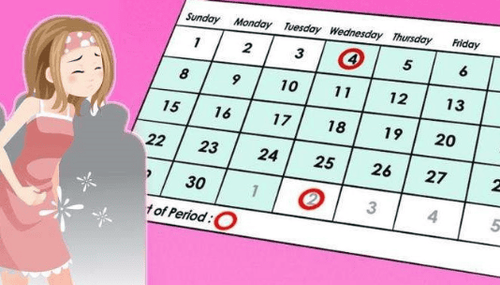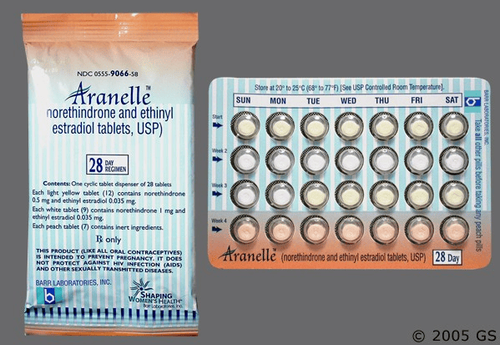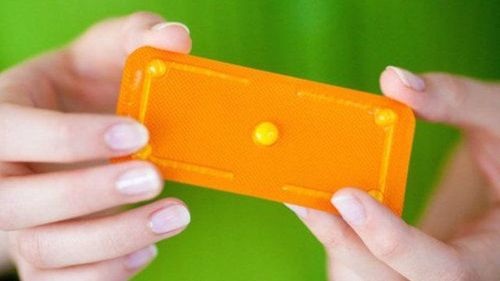This is an automatically translated article.
There are ways for you to delay your period for a few weeks, months or even years by using birth control. Doctors call this menstrual suppression. The article below helps you learn how to do and answer common questions about the use of menstrual delay pills.1. Why delay menstruation?
Delaying the menstrual cycle can help you manage various menstrual symptoms. It may be worth looking into if you have the following:
A physical or mental disability that makes it difficult to use tampons or tampons A condition that gets worse during periods, for example such as endometriosis or anemia Breast tenderness, bloating, or mood swings in the 7 to 10 days before your period Headache or other menstrual symptoms during the week you took the placebo pill Heavy periods, Prolonged, frequent, or painful periods In addition, menstrual bleeding is sometimes simply inconvenient. You may want to delay your period until after an important exam, sporting event, musical performance, vacation, or special occasion, such as a wedding or honeymoon.
MORE: Are there ways to delay menstruation?

Trì hoãn kinh nguyệt giúp kiểm soát các triệu chứng kinh nguyệt kéo dài
2. Is it safe to delay your period?
If your doctor says you can use hormonal birth control, you can use it to delay your period. However, the current delay of menstruation is still controversial. Therefore, if you want to try to delay your period, ask your doctor which option might be right for you.Sudden or spotty bleeding between periods - usually happens when you use hormonal birth control to delay or stop your period, especially during the first few months. However, this bleeding usually subsides over time, as your body adapts to the new treatment regimen. Another downside to delaying your regular period is that it can be difficult to tell if you're pregnant. If you experience morning sickness, breast tenderness, or unusual tiredness, take a home pregnancy test or consult your doctor.
MORE: Can I use birth control pills to delay my period?
3. Measures to delay the menstrual cycle
Stopping your period depends on hormonal birth control methods. The best method of delaying your period depends on your goals and preferences. For example, whether you want to have less menstrual bleeding and whether you want short-term or long-term birth control, your overall health. Talk to your doctor about the following options. These methods include:Oral contraceptives: You can delay or stop your period with prolonged or continuous use of any combined estrogen-progestin birth control pill. Some intrauterine devices (IUDs): Hormonal IUDs can last and work for 3 to 5 years, depending on the brand. The advantage of an IUD is that you don't have to remember to take your pills or do anything daily or monthly. Patch: These pills work like birth control pills, with 21 days of dual hormone use and 7 days off. To pause your period, you'll put on another hormone patch every 21 days. There is some evidence that long-term use of the patch may put you at a higher risk of developing deep vein thrombosis (VTE). IUD: The vaginal ring is a flexible plastic device that contains the same hormones as the combined oral contraceptive pill. To delay your period, you'll leave the ring on for three weeks, then replace it with a new one. The vaginal ring provides a more consistent dose of hormones than the patch or birth control pill. Implants: These include only the hormone progestin. A thin rod is placed under the skin on the inside of the arm. This method works for about 3 years. Implants help reduce bleeding during menstruation. But they completely stop menstruating in less than 25% of those who have them. Implants are the least effective method of stopping your period. Vaccination: The birth control shot is one of the effective ways to stop menstruation. At first, you may bleed a lot. This eventually goes away and the shots work well in stopping menstruation. Almost 75% of women do not have a period after a year of use, although bleeding between periods is very common. The birth control shots are repeated after 90 days. Weight gain is a side effect of this method. Accordingly, the possibility of bone loss is also possible, although it can be reversed once you stop the injection. There's no way to get rid of your period completely, and all carry the risk of sudden, unpredictable bleeding between your periods. If you want to cut down on the number of periods per year, experts recommend using standard birth control pills, the patch, or the vaginal ring. For long-term cessation of menstruation, birth control shots, long-term oral pills, and birth control devices usually work best. Talk to your doctor to find out how delaying your period works best for you.
SEE ALSO: Is it possible to actively postpone the menstrual period at will?
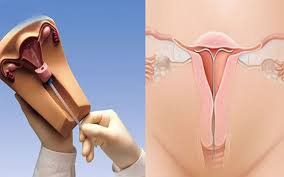
Vòng tránh thai là biện pháp trì hoãn chu kỳ kinh nguyệt
4. Medications that delay the menstrual cycle
The combined oral contraceptive (COC) is the most widely used method of stopping periods. Oral contraceptives usually come in 21 or 28 pills, with 28 pills containing 21 hormonal pills and 7 placebo pills. To stop your period, you have to start a new pack of hormone pills after 21 days and keep taking them until you're ready to get your period. With the 28-pill pack, you skip the placebo pills and start right away with the new pack.In addition, there are also some birth control pills that are specifically designed to prolong the time between periods. These include brand-name drugs such as:
Amethyst is the first oral contraceptive pill approved by the FDA for continuous use. The drug is a low-dose hormone combination that can be taken for 365 days without a placebo pill. Jolessa: With this, you take the active pill continuously for 84 days — or 12 weeks — followed by a week of a placebo pill. Your period occurs at week 13, about every three months. Amethia, Camrese, and Simpesse: With these pills, you'll take them for 84 days -- or 12 weeks -- followed by a week of pills that contain a very low amount of estrogen. Your period occurs at week 13, about every three months. Taking low-dose estrogen pills instead of a placebo helps reduce bleeding, bloating, and other side effects sometimes associated with hormone-free periods. Rivelsa: With the 91-day regimen, you take the pill continuously for 84 days. Each pill contains a constant dose of progestin, but the dose of estrogen is gradually increased - starting with 20 mcg, increasing to 25 mcg and increasing again to 30 mcg - at three different times in the regimen. Then you take a week of pills that contain a very low dose of estrogen. Your period occurs about every three months. The gradual increase in estrogen in Rivelsa may reduce the sudden bleeding episodes that occur during the first cycle of the extended pill compared to other long lasting pills. Having to remember to take a daily pill can be difficult for some people. The risks associated with continuous use of combined oral contraceptives are the same as with regular use - there is a slight chance of blood clots and stroke. These risks are higher in women who smoke, are over 35 years old, or have high blood pressure.
Please dial HOTLINE for more information or register for an appointment HERE. Download MyVinmec app to make appointments faster and to manage your bookings easily.
Reference source: mayoclinic.org




